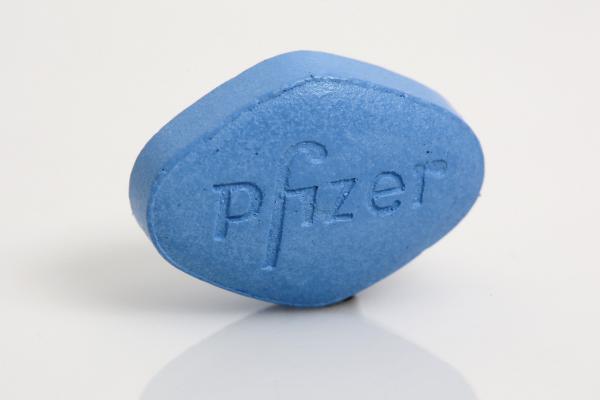Sometimes, guys need a little help in the bedroom, and one option is to use a drug like Viagra or Cialis. The former works for about four hours, while the latter can work up to 24 hours or even longer. Why? Aren't they essentially the same thing?
Yes and no.
Yes, they do the same thing (schwing!) using the same mechanism (i.e., inhibition of an enzyme called PDE5). But no, they are actually quite different. Though nowhere nearly as grueling as my colleague Dr. Josh Bloom's Dreaded Chemistry Lesson from HellTM, this article gets a little wonky.
Pharmacology 101
A drug's effect on the body is based on a combination of things, such as the physical nature of the drug itself (which involves a combination of molecular composition, shape, size, and charge), the body's ability to absorb the drug (e.g., how well the gastrointestinal tract absorbs it), the cellular targets that are available for the drug to bind to, and the body's ability to eliminate the drug. Taken together, such characteristics help determine the proper dose. The doses for sildenafil (Viagra) and tadalafil (Cialis) are shown below:

Source: Pan Pantziarka et al., eCancerMedicalScience, 2018.
The doses aren't the same. Viagra (sildenafil) requires a higher dose than tadalafil (Cialis). That's a hint that there's something fundamentally different about these drugs. Indeed, their molecular structures are completely different.
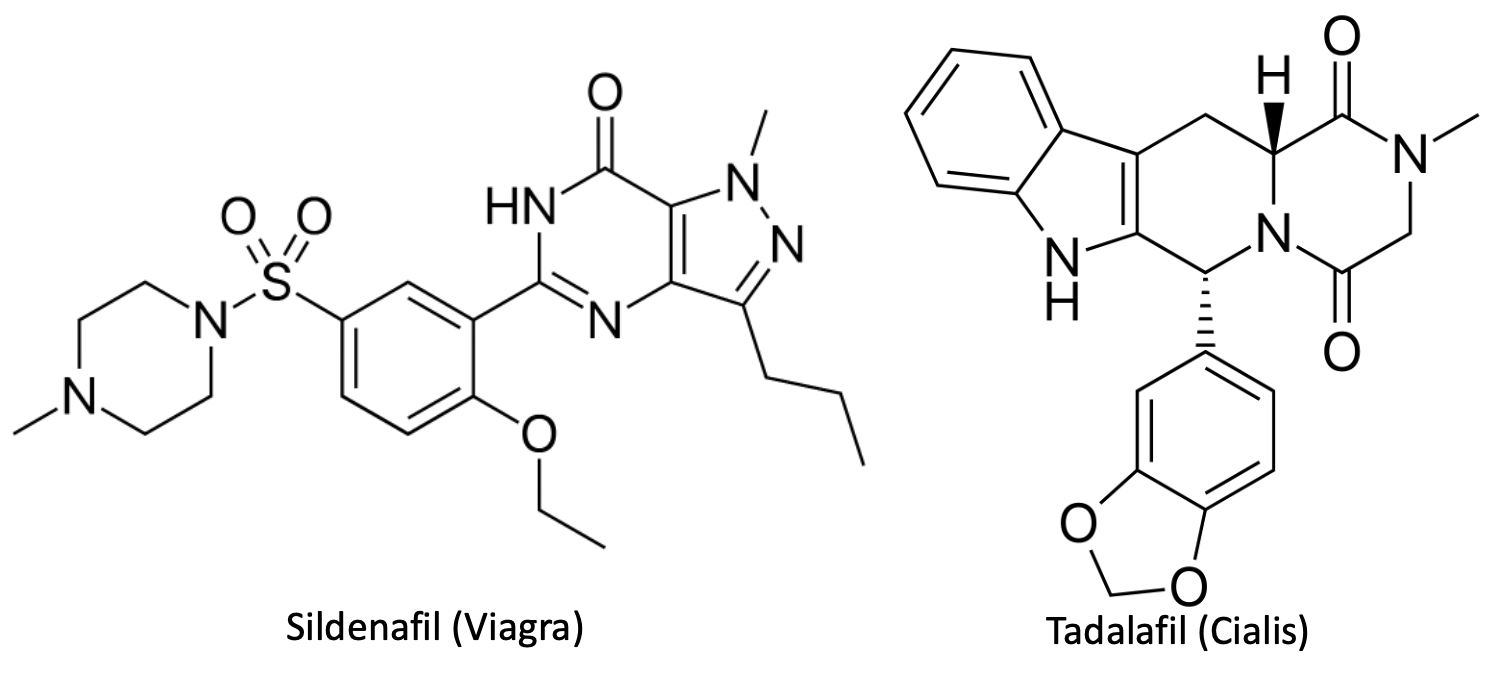
Source: Mrgreen71 and Public Domain (Wikipedia)
Different molecular structures mean that the drugs have different impacts on the body. For instance, Cialis is much more potent than Viagra, and thus, a lower dose can achieve the same result (schwing!). We know this because biochemists measure something known as the IC50 (half maximal inhibitory concentration), which describes the amount of drug necessary to inhibit some biological process by 50%. In this case, the biological process is a reaction catalyzed by an enzyme called PDE5. Viagra and Cialis both inhibit that reaction, but Cialis is better at it.
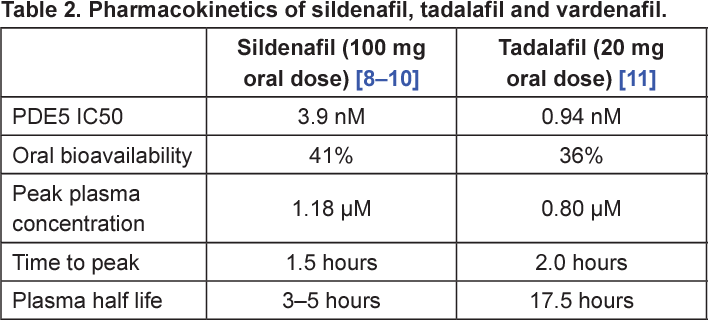
Source: Pan Pantziarka et al., eCancerMedicalScience, 2018.
There's another thing Cialis is better at: Sticking around inside the body. The half-life of a drug is the time it takes for the body to eliminate 50% of it. Drug elimination is a combination of two processes: Excretion (e.g., eliminating the drug through urine) and metabolism (e.g., transforming the drug into a different molecule in the liver, which is then usually followed by excretion in the urine).
Note that the plasma half-life of Cialis is 17.5 hours. That means it takes 17.5 hours for the concentration of Cialis to drop by half in the blood. For Viagra, it's only about 4 hours. That's why you can take Cialis a full day before having sex but not Viagra.
Here's the elimination curve for Viagra, which depicts the amount of Viagra in the blood over time. (Black dots represent men who did not eat; white circles represent men who did eat. Eating food with Viagra prevents absorption of the drug.) Notice that the concentration of the drug in the blood peaks at about 1-1.5 hours, but is almost entirely eliminated from the body within 16 hours.
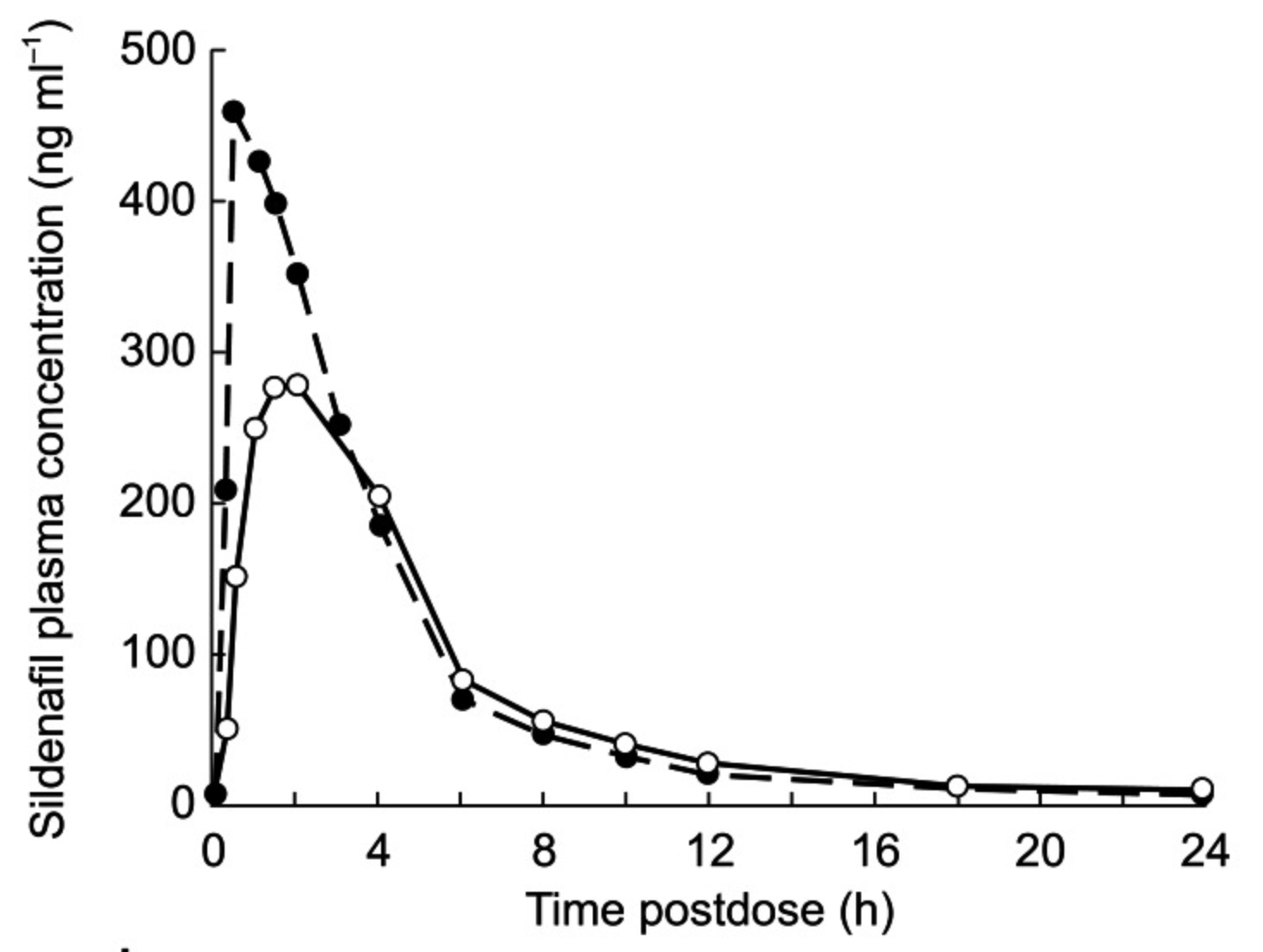
Source: DJ Nichols et al., Br J Clin Pharmacol, 2002.
Now, here's the elimination curve for Cialis. Notice that it takes at least 72-96 hours (3-4 days) to eliminate the drug from the body. That's why the effects of Cialis last a lot longer than those of Viagra.
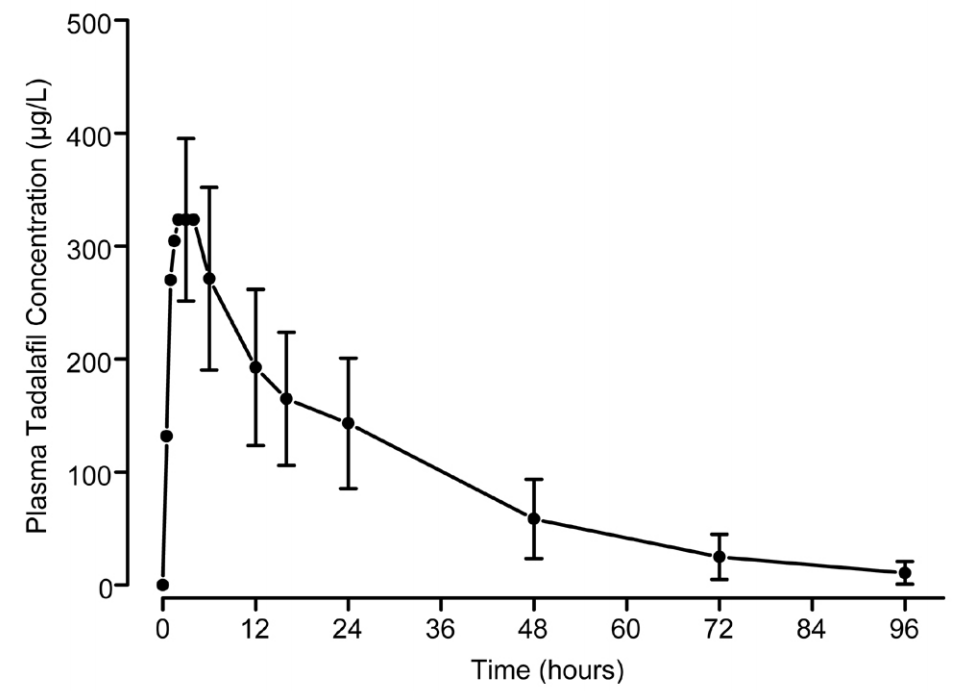
Source: FDA, 2007.
The Bottom Line
If you don't learn anything from this pharmacology lesson, at least remember this one thing: Call your doctor if your erection lasts longer than 4 hours. Seriously. That's no good at all.
